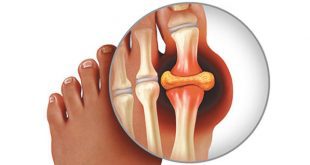By Dr. Noël Crosby, Au.D.
Valentines Day and the month of February have always been linked to the heart. There is now a growing body of research and evidence that suggests that hearing loss and cardiovascular ailments are also linked. This is why everyone should think of their ears as a window to their heart. If you are experiencing hearing loss, pay attention to your entire health. The more we learn about hearing loss, the more we discover that it very often co-exists with other health conditions. You should pay attention to your entire wellbeing. Hearing loss is not a self-contained impairment limited just to your ears.
Many different studies conducted here in the USA and overseas have demonstrated that quite a few serious ailments can impact how well we hear. These studies have shown that all the bodily organs and functions are tightly interconnected. When one system or organ fails, it sends rippling effects through the others. Your hearing is not immune to this process. There has been a sizable body of research conducted over more than six decades that collected information about cardiovascular disease and hearing. The authors of a study published in the American Journal of Audiology using the information from this research have concluded that there is a negative influence of impaired cardiovascular health on both the peripheral and central auditory system. There is also the potential positive influence of improved cardiovascular health on these same peripheral and central auditory systems.
New research from Brigham and Women’s Hospital also reveals that a healthy heart may be the key to keeping your hearing healthy. In the study, researchers also found correlations between certain audiometric patterns and arterial disease. One pattern, a reverse slope, which identifies low frequency hearing loss, may suggest the presence of cardiovascular disease. Some researchers hypothesize that because the inner ear is so sensitive to blood flow, any abnormalities in the condition of blood vessels in the inner ear could be noticed earlier than in other, less sensitive parts of the body. In one study—presented by David R. Friedland, MD, PhD, Associate Professor of Otolaryngology and Communication Sciences at the Medical College of Wisconsin in Madison in 2009.
Combined Otolaryngology Spring Meeting—it was hypothesized that low-frequency hearing loss may be a potential marker for predicting the presence of, or potential development of cardiovascular disease. These studies could prompt hearing professionals to consider making a referral to assess cardiovascular health after low frequency hearing loss has been identified.
According to a study in older adults, the prevalence of suffering from various degrees of hearing loss is 54 percent greater among those who have a history of heart disease than in the general population. The study also indicated that those individuals who exercise at least once a week saw a 32 percent reduction in the risk of suffering from hearing loss, when compared to sedentary people. (Source: “The Association Between Cardiovascular Disease and Cochlear Function in Older Adults.” Population Health Program Faculty, Wisconsin University, First Annual Population Health Poster Session selected abstracts 2001-2002.)
It’s a good idea for those people with cardiovascular disease to get their hearing checked, and for those people with hearing loss to pay close attention to their cardiovascular health. The inner ear is extremely sensitive to blood flow. All these studies have shown that a healthy cardiovascular system—a person’s heart, arteries, and veins—has a positive effect on hearing. Conversely, inadequate blood flow and trauma to the blood vessels of the inner ear can contribute to hearing loss.
To help promote hearing health care we will be offering for a limited time a FREE hearing screening. Time slots are limited so please call today to make your appointment 941-474-8393
About Advanced Hearing Solutions — Using the latest and most sophisticated technology, we determine if you have hearing loss–and, if you do, we determine the degree and type of hearing loss. If your hearing loss requires medical or surgical intervention, we can refer you to a physician (otologist or neurologist) for appropriate treatment. If your type of hearing loss can best be treated with the use of hearing aids and/or other assistive listening devices (which is true in the great majority of cases), we can select any of a wide range of hearing devices and custom fit them to your ear, programmed to augment your hearing at those frequency levels where your hearing loss is greatest.
 Southwest Florida's Health and Wellness Magazine Health and Wellness Articles
Southwest Florida's Health and Wellness Magazine Health and Wellness Articles

